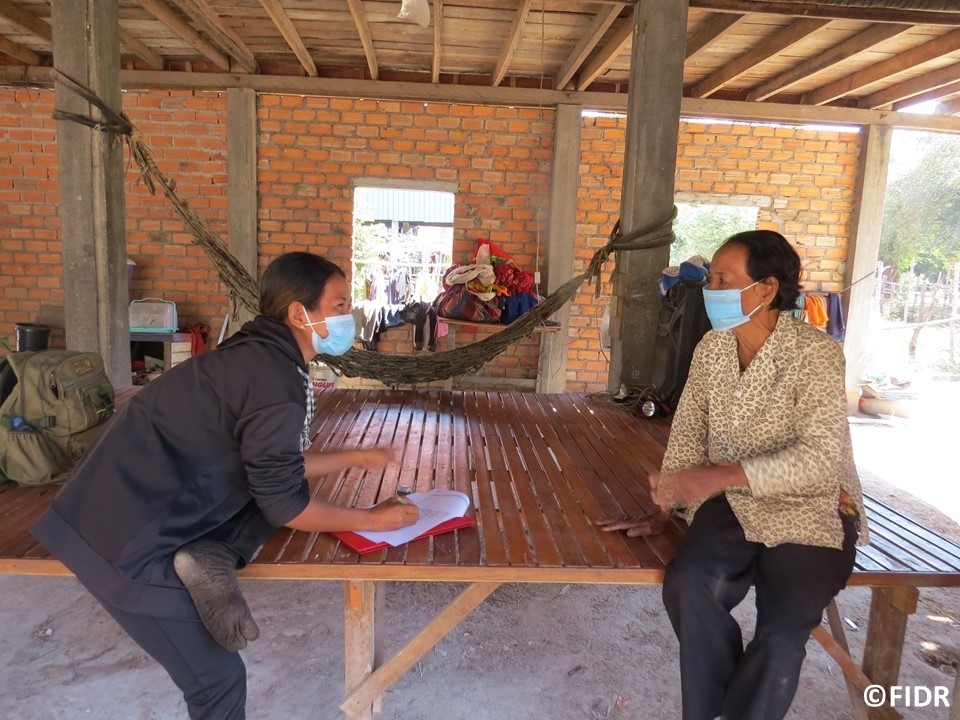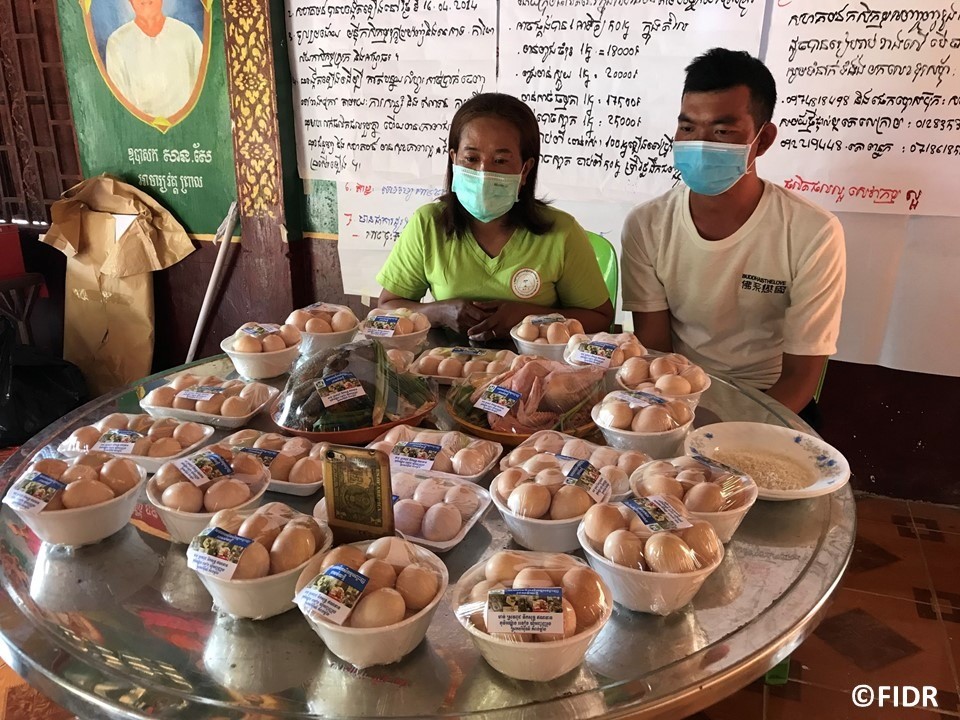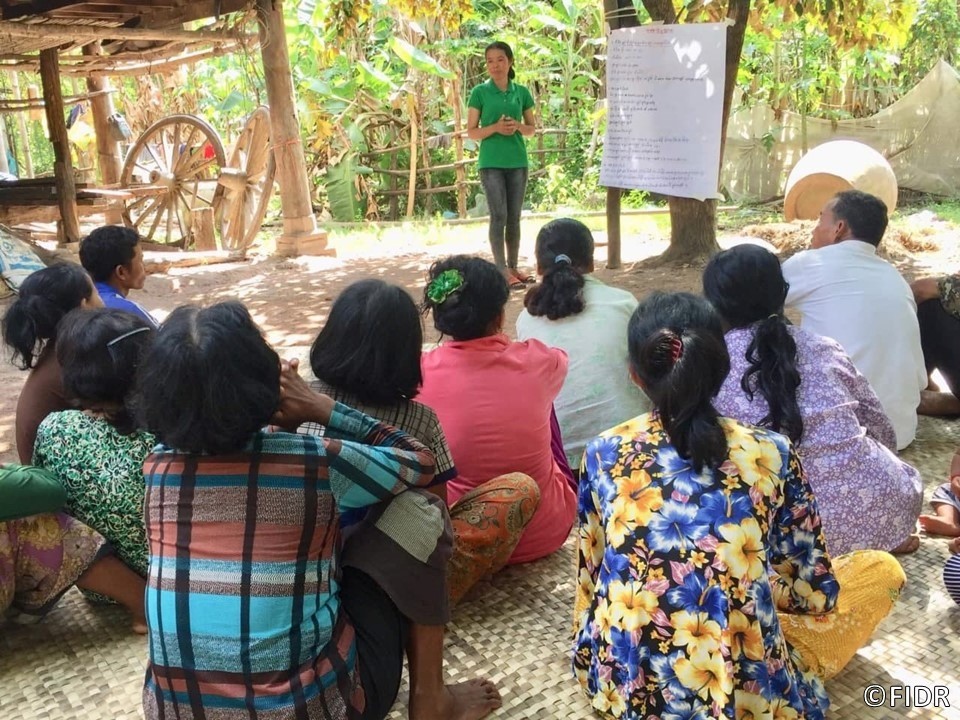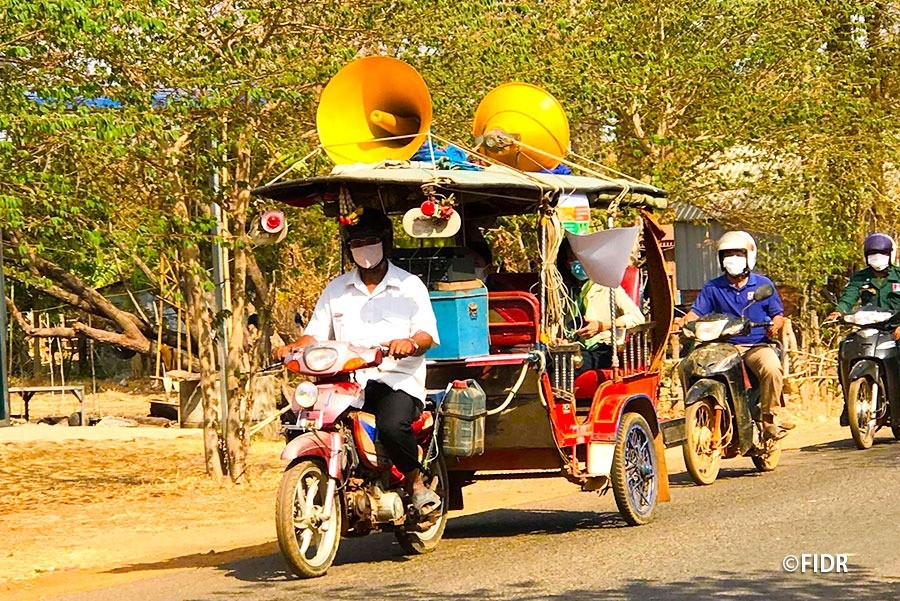Issues the Project Tackles
Kampong Chhnang Province, located in the middle of Cambodia, is the region with the second highest proportion of poor households among 24 administrative districts. In the province, one in three children under five is significantly underweight, and one in four is stunted which are mainly caused by chronic undernutrition.
Background of the Issues
Cambodia has achieved remarkable economic development in recent years, and the poverty rate nationwide has dropped significantly from 47.8% (2007) to 13.5% (2014). However, this improvement is mainly due to the urban growth. While a poverty rate in Phnom Penh, the capital of Cambodia, is 7.0%, that of Kampong Chhnang, one of the rural provinces is 46.5%.
Because of this condition, the working generations, who are young men and women in rural areas, have to work as migrant workers or factory workers to earn cash income.

On the other hand, in rural areas, only grandparents and children are left in the family, running small-sized farming with low yield. It is the fundamental reason which makes the children suffer from malnutrition. It means, besides the low productivity of rice which is common food of the everyday diet, it is not easy for them to obtain other source of nutrients, such as vegetables, fish, meat, and eggs. Furthermore, there is little opportunity for children to learn about health and good eating habits.

FIDR was engaged in a pilot project in five communes of Rolea Pa-ir district of Kampong Chhnang Province for four years since 2007. After confirming its effectiveness, from 2011 to 2016, FIDR improved eating habits and increased income of people in 39 villages of five communes in Rolea Pa-ir and Boribo district of Kampong Chhnang Province by increasing rice production and introducing vegetable farming and chicken raising.
The success of the pilot project enabled people living in rural areas to become confident that they can maintain a stable livelihood by agriculture without leaving their hometown to work as migrant workers or factory workers.
At the same time, children's nutritional status was improved through the dissemination of knowledge and practical methods of hygiene and nutrition which mainly targeted families with small children.
Also in the pilot project, agriculture cooperatives were established in each of the five communes so that the local people could continue and create more impact on the community by themselves. Some leaders wanted to share the experience with not only people in their villages but also people in the other areas. Responding to the support requests from local authorities of Kampong Chhnang Province and Ministry of Agriculture, Forestry and Fisheries, FIDR has been implementing a new project since 2017, aiming at improving the livelihood of people in a wider area.
Project Purpose
Ensuring sufficient food and intake of nutritious meals for people in targeted areas to have healthy lives and enabling them to improve their living condition by themselves
Project Details
Project Site
37 villages in 5 communes of Rolea Pa-ir District, 20 villages in 3 communes of Tek Pos District, and 6 villages in 1 commune of Boribo District in Kampong Chhnang Province
Beneficiaries
- Approximately 25,000 people (6,187 households) in 32 villages in five communes(Two communes in Rolea Pa-ir District and three communes in Tek Pos District)
※Beneficiaries of activities related to agriculture cooperatives 23,000 residents (5,587 households) in four communes (Three communes in Rolea Pa-ir District and one in Boribo District)
Main Activities
- Increase agricultural productivity through training on rice cultivation skill (SRI farming method), chicken raising, and home gardening
- Improve Dietary life and hygienic habit through measurement of children’s nutrition statuses, demonstration of complementary feeding diet (CFD), training on public health, and training on disease prevention etc.
- Promote information and experience sharing through conducting Leadership training, information-sharing meetings, construction of regional networks, etc.
- Strengthen the institutional capacity of agricultural cooperatives through conducting training on management and marketing, construction of the office, etc.
※SRI(System of Rice Intensification)
SRI is a rice cultivation method achieving high yield without relying on breed improvement or chemical fertilizer. It enhances the growth ability of rice plant by employing techniques such as transplanting single seedling of one to two weeks old in wide spacing, controlling water level of rice sector strictly and weeding thoroughly. As this method brings in two to three times higher yield comparing with conventional cultivation method while input of seeds and water are decreased significantly, it has been introduced and practiced in many developing countries.
Project Period
FY 2017 ~ FY 2020 (Total project period: FY 2011 ~ FY 2020)
Our Approach
- We establish the cooperative system beyond regions, where people in target areas of the preceding project can share their experiences with people in new target areas.
- We introduce pleasure and possibility in agriculture to young generation in rural areas where employment opportunity is quite limited after graduating from school. When highly motivated farmers (key farmers) are raised, a big change is occurred in regional efforts to agriculture and even to the care to children’s health.
- We strengthen the institutional capacity and management capacity of agricultural cooperatives in order to promote the autonomous growth of communities led by agriculture cooperatives.
Activity Reports
-
Food and Nutrition Security Project

2021.06.25
How did we conduct the project endline survey?
Cambodia Health anbd Hygiene Nutrition Agriculture International Cooperation for Social Development -
Food and Nutrition Security Project

2021.06.23
Agricultural Cooperatives started using Facebook for marketing
Cambodia Health anbd Hygiene Nutrition Agriculture International Cooperation for Social Development -
Food and Nutrition Security Project

2021.04.23
Hidden effects of the project
Cambodia Health anbd Hygiene Nutrition Agriculture International Cooperation for Social Development -
Food and Nutrition Security Project

2020.09.10
COVID-19 Prevention Campaign — The importance of a hygienic lifestyle
Cambodia Health anbd Hygiene Nutrition Agriculture International Cooperation for Social Development
DONATION
Your generous donation now will have impacts
on children and communities in our fields.


















